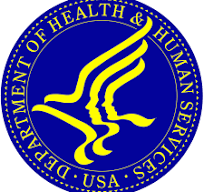Every cycle the Arizona Secretary of State generates a publicity pamphlet to help educate voters ahead of the general election. The pamphlet includes arguments in support of and against citizens’ initiatives and legislative referral. It’s a feature of the Clean Elections voter initiative from several years ago. The publicity pamphlet is a key educational resource for voters to use before voting.
As Arizona’s independent voice for public health, we’ve played a key role in helping voters to understand the public health implications of the various ballot measures. One way we do that is to send arguments for and against ballot propositions focusing on the good and bad public health impacts. Last cycle AZPHA placed arguments for or against 4 of the 10 ballot propositions.
This cycle the window for getting arguments filed is May 20th – June 20th. The arguments are posted in order they are received so it’s a good idea to get arguments early so voters see our stuff first.
There are already 6 ballot measures set for the 2024 ballot (not including the upcoming voter-driven Arizonans for Abortion Access). Three have direct impacts to public health / public health policy and a 4th will the AZ for Abortion Access initiative.
Our Public Health Policy Committee will be recommending arguments for the publicity pamphlet to our Board of Directors for consideration at our May 17 Board Meeting. If approved, I’ll be authorized to submit our arguments for the publicity pamphlet.
Anybody can turn in an argument. Simply write up an argument (300-word limit) and submit it to the General Election Ballot Measure Argument Portal along with the $75 fee. Portal is open from May 20 to June 20.
______
View a summary and our draft argument FOR the Arizona for Abortion Access Act
See Our Draft Argument (For)
This voter driven constitutional amendment would establish the fundamental right to abortion that the state of Arizona may not interfere with before the point of fetal viability unless justified by a compelling state interest (e.g. improving or maintaining the health of the individual seeking abortion care that does not infringe on that individual’s autonomous decision making).



